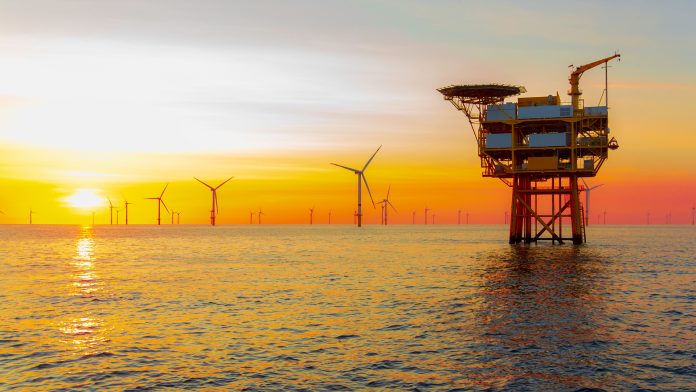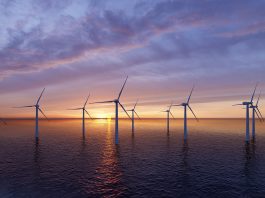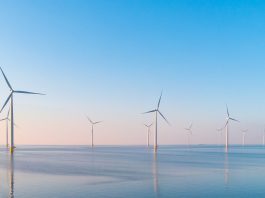David Wilson, Director of Development at MGH Offshore, spoke to us about securing the right materials and personnel to address challenges within the offshore wind and global energy sectors.
MGH Offshore specialises in providing efficient engineering solutions for projects in the global energy sector.
With many years of experience in the renewable energy, oil, and gas industries, MGH can deliver knowledge and expertise to address complex challenges within the offshore wind and global energy sectors.
We spoke to David Wilson, MGH’s Development Director, to discover more about how to secure the right materials and staff to advance the sector and ensure projects run smoothly.
Can you provide insights into MGH Offshore’s supply chain strategies regarding materials procurement and securing the right personnel for projects?
MGH Offshore provides a wide range of services within the global energy sector. As such, it uses a multifaceted approach to material procurement and personnel sourcing.
The process framework is as follows:
Materials procurement
Strategic sourcing allows MGH to develop relationships with reliable suppliers of key materials, negotiate long-term contracts to stabilise supply to reduce costs, and evaluate alternative materials and suppliers to diversify risk and build supply chain resilience.
Leveraging expertise and connections allows MGH to identify suppliers in strategic locations and understand local regulations and import/export requirements for efficient cross-border procurement.
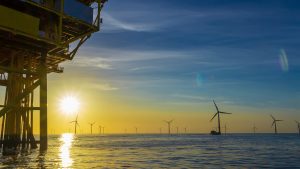
Tailor material procurement is based on project requirements and location, considering factors like availability and lead times.
Prefabrication or off-site assembly must be considered to reduce on-site material requirements and potentially streamline construction processes.
Securing an offshore wind workforce
MGH identifies the specific skill sets required for upcoming projects, anticipates the need for specialised expertise in advance and proactively assesses gaps between current workforce capabilities and projected project needs.
Through partnerships with subcontractors or specialised firms for specific skills or resources, MGH has built a strong reputation as an attractive employer to attract top talent in the offshore wind industry.
The company is now looking to form joint ventures to combine capabilities and expand the pool of available expertise.
Upskilling the offshore wind workforce is important, as continuous training and development enables existing employees to enhance their skills and adaptability.
Could you elaborate on the current progress of MGH Offshore’s ongoing battery energy storage system build, particularly highlighting any significant milestones achieved within the first two months?
In December 2023, MGH Offshore was awarded the initial phase construction contract for building a 150MW Battery Energy Storage System in the Northeast of England. After 11 weeks, MGH delivered the project to the point where the Balance of the Plant was the next phase.
The key milestones for MGH to date have been:
- On contract to be awarded a rapid response to mobilise a qualified workforce – five days over Christmas 2023
- Procurement and delivery of equipment to site to execute containment and cabling phases
- Integration with the client at all levels to ensure timely delivery of the project
- Assembling and installing the individual battery modules within the system, forming the core energy storage component
Looking ahead, what upcoming projects does MGH Offshore have in the pipeline for the next few months, and how do they align with the company’s strategic goals and capabilities?
As a specialist company in providing solutions for the offshore wind industry and global energy sector, we leverage our strengths to address potential challenges when achieving and developing our current pipeline of work.
Capitalising on strengths
MGH boasts over two decades of experience in the offshore wind industry and global energy sector and has gained a strong reputation for delivering excellence. We leverage our expertise, allowing clients to see our ability and capability to deliver on complex projects.
Our international presence allows us to access and support projects for clients worldwide. MGH has a presence throughout Europe and the USA and has simultaneously supported projects across four continents.
MGH understands the evolving offshore energy sector, including its challenges and opportunities. This lets us stay updated on the latest trends and focus our services accordingly.
At MGH, we stay ahead of our service offerings to ensure we know what clients in all sectors seek.
A Consultancy Programme throughout supports our full project Life Cycle and is as follows:
- Design
- Engineering, procurement, and manufacture
- Installation and commissioning
- Operations and maintenance
- Decommissioning, disposal and repurposing
Addressing challenges and opportunities in the offshore wind industry
The offshore wind industry is rapidly growing, attracting numerous players that are offering workforce solutions. MGH differentiates itself in the offshore wind supply chain in several ways.
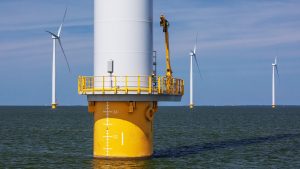
The company focuses on specific niches within the industry, like floating offshore wind farms, where its expertise is valuable. To provide clients with a comprehensive solution, it offers additional services such as training, project management support, or compliance assistance.
The offshore wind industry faces a growing demand for skilled workers. MGH can address this by partnering with institutions to develop and offer specialised training programmes for relevant personnel.
Exploring opportunities to help ex-military personnel or individuals from other industries transition their skills to the offshore wind sector through dedicated programmes.
As the industry prioritises sustainability, MGH demonstrates its commitment by reducing its carbon footprint through operational changes and utilising eco-friendly solutions.
Clients can achieve their sustainability objectives by receiving personnel experienced in implementing sustainable practices in offshore wind projects.
Additional strategies
MGH utilises digital tools for efficient recruitment, candidate management, and project communication to streamline operations and improve client experience.
Collaborating with key industry players, such as wind farm developers, equipment manufacturers, and training providers, can open up new opportunities and enhance service offerings.
Continuously monitoring industry trends, regulations, and emerging technologies allows MGH to adapt its services and stay ahead of the curve.
By effectively utilising their strengths, addressing challenges, and implementing these additional strategies, MGH Offshore Ltd can navigate the competitive landscape and achieve its current pipeline of work within the growing offshore wind and global energy sectors.
Regarding the Fire & Gas system, could you explain how MGH Offshore’s NFPA registration distinguishes the company within the industry and enhances its offerings in this area?
NFPA registration is not typically applicable to companies. The National Fire Protection Association (NFPA) is primarily a standards development organisation, not a registration body. They don’t register companies in the traditional sense.
However, the NFPA plays a crucial role in the fire safety landscape by developing and publishing NFPA codes and standards.
MGH has certification against numerous NFPA codes and standards for supporting the global energy industry, including shipping.
In what ways does MGH Offshore ensure compliance with NFPA standards in its Fire & Gas system solutions, and how does this commitment to regulatory standards benefit its clients?
Having an NFPA certification allows MGH to:
- Showcase its dedication to exceeding basic safety requirements and prioritising fire safety within our operations
- Increase trust and confidence from potential clients, partners, and regulatory bodies, indicating a commitment to responsible practices
- Certain projects, particularly those in high-risk environments, might mandate compliance with specific NFPA codes and require certification as part of the process
It’s important to remember that NFPA certification is usually voluntary, except when mandated by specific regulations or project requirements.
Not all companies need NFPA certification; its relevance depends on their specific industry and operations.

